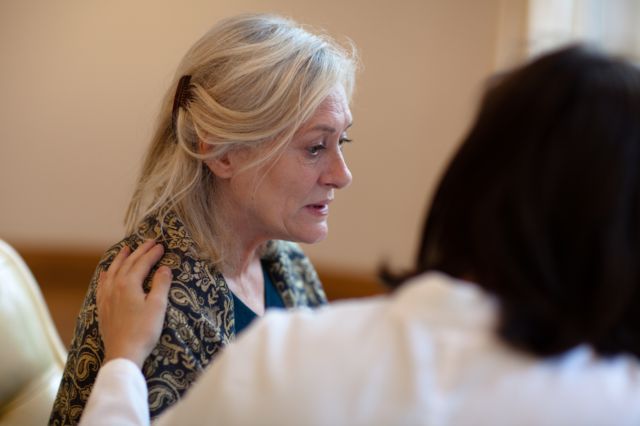A Brief Colonial History Of Ceylon(SriLanka)
Sri Lanka: One Island Two Nations
A Brief Colonial History Of Ceylon(SriLanka)
Sri Lanka: One Island Two Nations
(Full Story)
Search This Blog
Back to 500BC.
==========================
Thiranjala Weerasinghe sj.- One Island Two Nations
?????????????????????????????????????????????????Thursday, August 29, 2019
Alzheimer's risk 'different in women and men'

More women than men are living with Alzheimer's disease
Scientists say they may have discovered why more women than men have Alzheimer's disease and dementia.
It has always been thought that women living longer than men was the reason.
But new research presented at an international conference suggests this may not be the whole story.
Differences in brain connectivity and sex-specific genes linked to risk could explain the numbers, the researchers say.
Most people living with Alzheimer's - the most common cause of dementia - are women.
In the UK, about 500,000 women have dementia, compared with 350,000 men.
Most people who develop the disease are over the age of 65 but it is not a normal part of ageing.
Alzheimer's disease can affect younger people too.
Higher brain connectivity
Researchers from Vanderbilt University Medical Centre studied brain
scans of hundreds of men and women, looking at the pattern of a protein
called tau.
One of the characteristic features of Alzheimer's is the build-up of proteins called tau and amyloid in the brain.
When they form toxic, tangled clumps, this causes brain cells to die, leading to memory problems.
The researchers found differences between the sexes in how tau was spread across regions of the brain.
Women appeared to have better connectivity between the regions where tau
protein builds up - and this had implications for the brain, the study
said.
With this higher connectivity, women's brains may be at risk of faster spread of tau - and of cognitive decline.
Dr Jana Voigt, head of research at Alzheimer's Research UK, said the
study revealed "sex-specific differences in brain connectivity that
could contribute to differing Alzheimer's risk in men and women".
But she said more research was needed to see if there were ways of using
this information to treat people with the disease and reduce the risk
of it developing.
Sex-specific genes
Another study, from the University of Miami, found evidence that genes
specific to women and men could be linked to Alzheimer's risk.
The discovery could lead to unique risk profiles for men and women.
Brian Kunkle, who led the research, said that "genetics could contribute
to differences in risk and progression" of the disease between both
sexes.
However, whether this information can be used to identify men and women at risk of the disease is not yet known.
"We don't yet know why certain genes are linked with Alzheimer's risk in
one sex and not the other - but unravelling this could provide some
answers as to why more women are living with dementia than men," said Dr
Voigt.
The research was presented at the Alzheimer's Association International Conference in Los Angeles.

